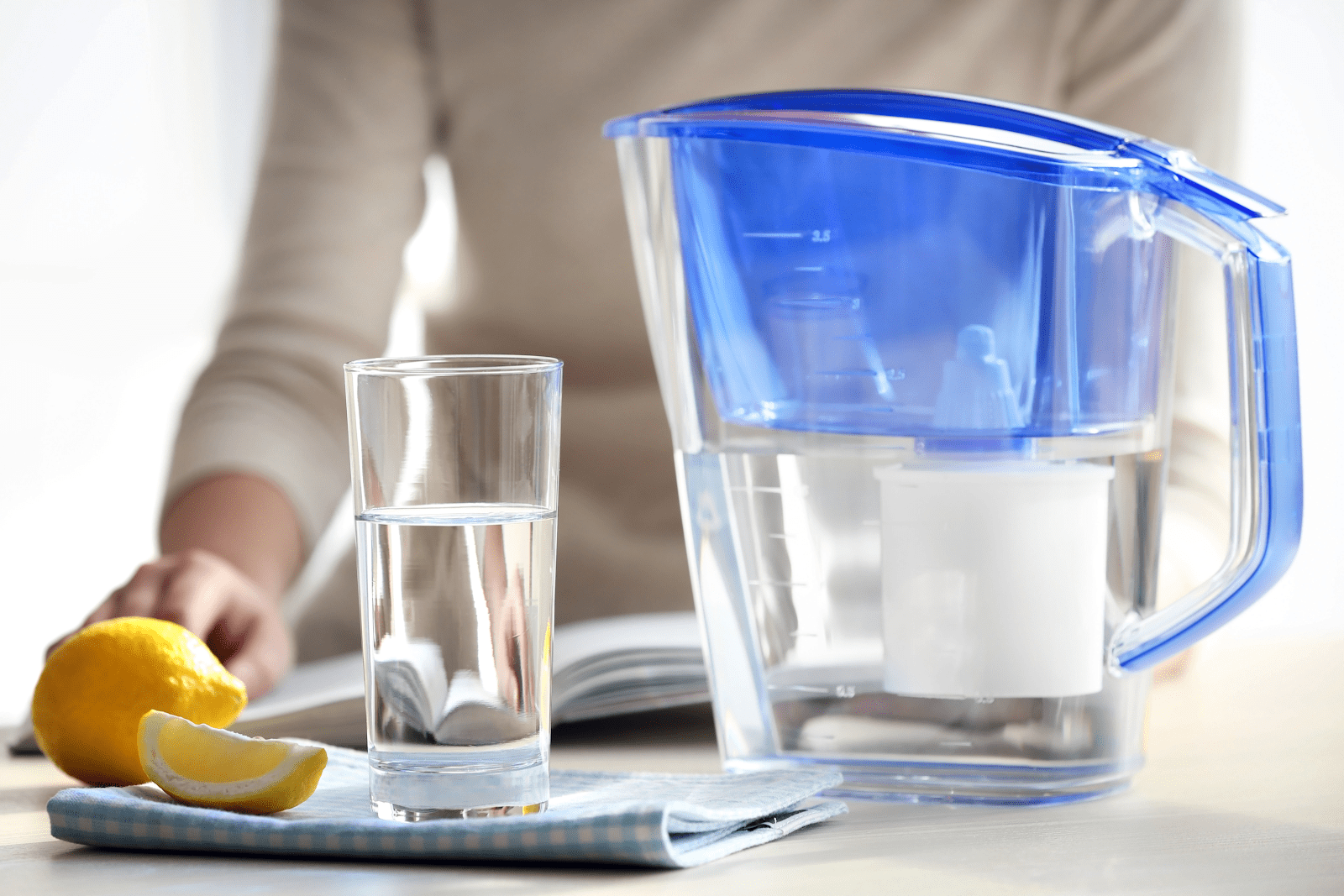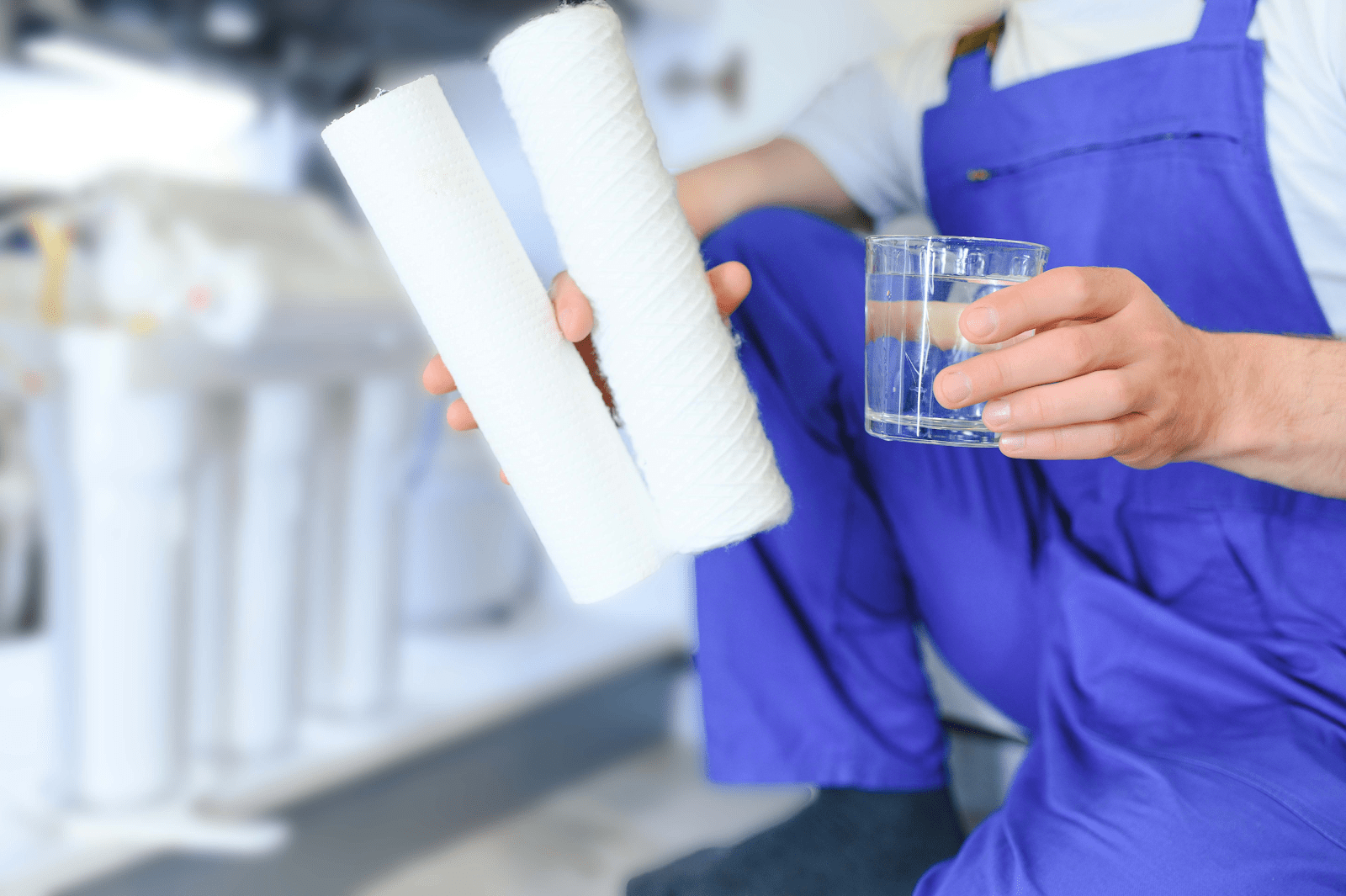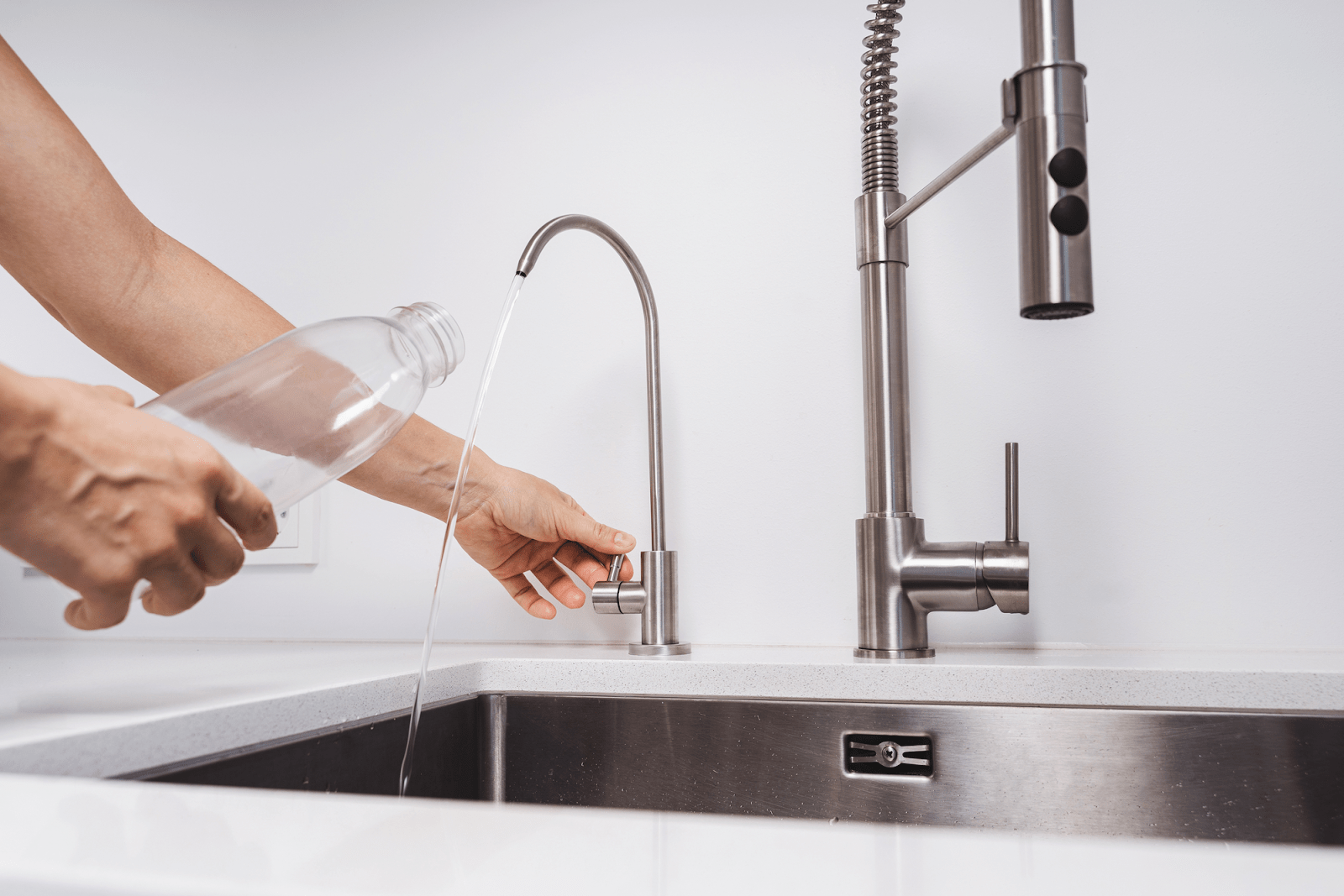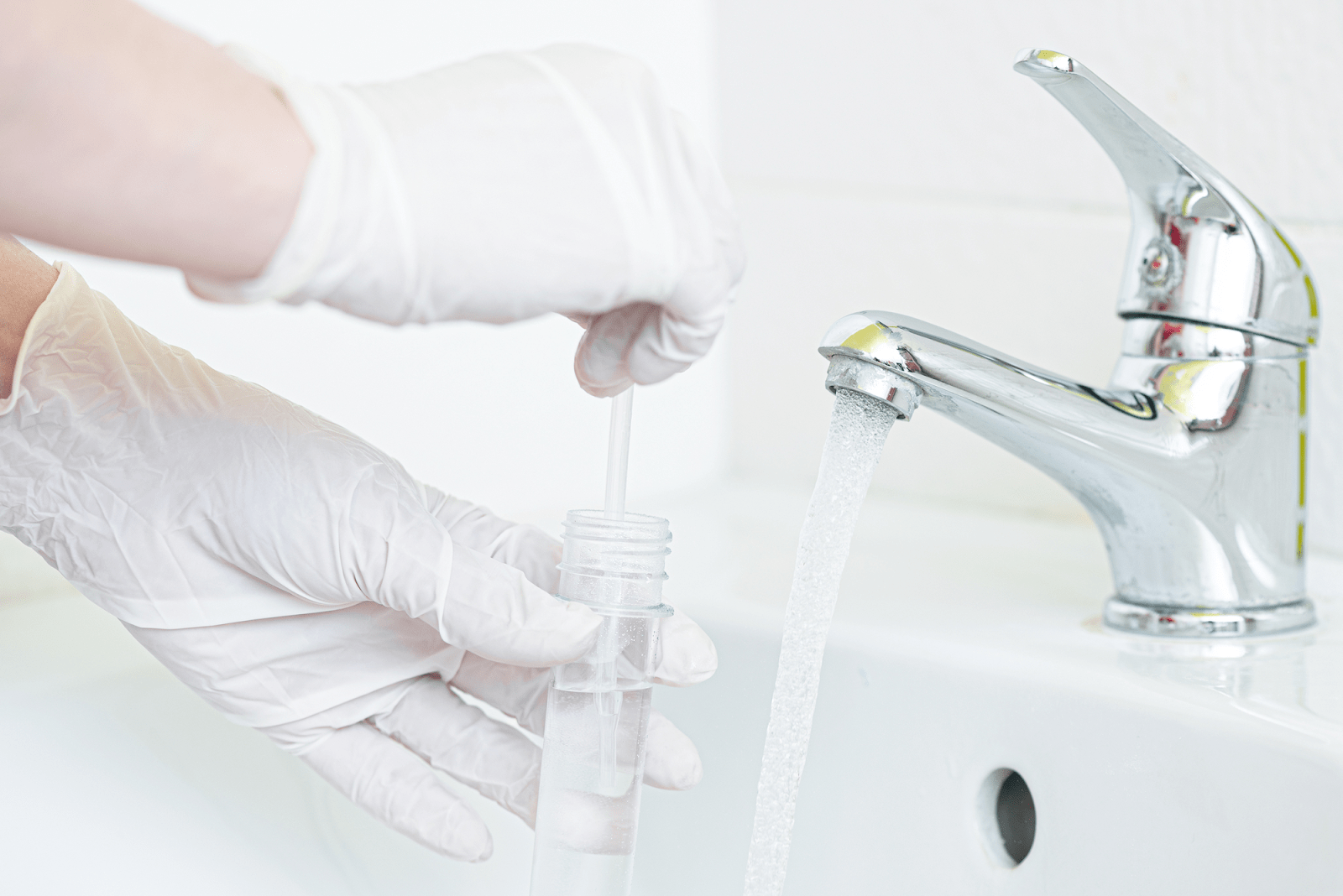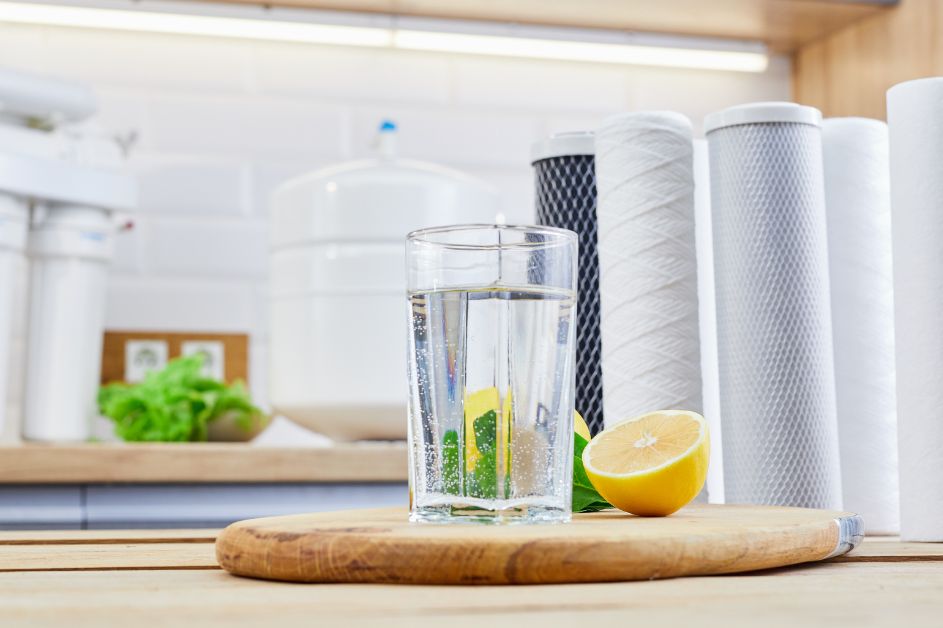We all know that water quality is becoming a growing concern. At Mid-Atlantic Water Services we understand that identifying common contaminants in our tap water and taking action to filter them out is a vital step in protecting the health of our families.
We’ve been serving the area for many years and know the local water well. In this article, we’ll discuss the complexities of water and compare two options that many homeowners consider when it comes to filtering their drinking water. Our goal is to empower you to make an informed decision that is best for the well-being of your family.
The Importance of Water Quality
Common contaminants, such as bacteria, viruses, heavy metals, and chemicals can potentially affect our health when present in the water we drink. These contaminants have been shown to lead to a range of health issues, from gastrointestinal problems to long-term illnesses. Additionally, compromised water quality can affect the taste, odor, and appearance of water, diminishing your overall experience.
The Pros and Cons of Water Pitcher Filters and Reverse Osmosis Filters
While trying to obtain cleaner, healthier, filtered water, many homeowners find themselves trying to decide between different water filters such as pitcher filters and an under-the-sink filtration system commonly known as Reverse Osmosis (RO). Each option has advantages and drawbacks.
Water Pitcher Filters Pros
Water pitcher filters are initially more budget-friendly. They can oftentimes be more user-friendly as well. Just drop in the filter, fill up the pitcher, and wait. Water pitchers are also portable and don’t require alteration to your current plumbing or electricity. They may be a great option for those who rent and can’t make permanent changes to their home but who are still seeking filtered water.
Cons of Water Pitcher Filters
The capacity of a water filter pitcher is limited making them less suitable for larger households or for those who consume an adequate amount of water per day. Filter replacement is also needed more frequently and forgetting to replace the filter can make it less and often ineffective. Those replacement filters can also take their toll on your budget.
While water pitcher filters can be effective at reducing basic contaminants like chlorine and sediment they may not be as effective at removing more advanced or harmful contaminants present in our water like heavy metals or fluoride.
These types of filters also take some time to work so if you forget to fill your pitcher you may be waiting thirstily for your next pitcher of filtered water to complete.
Advantages of Reverse Osmosis (RO) Systems
RO systems have a comprehensive contaminant removal process and water often runs through multiple stages of filtration. This type of under-sink water filter is highly effective at reducing a wide range of contaminants such as bacteria, viruses, dissolved minerals, heavy metals, and other impurities, and provides exceptionally clean, filtered water.
According to the WQA (Water Quality Association) reverse osmosis system’s multi-barrier approach eliminates a wide variety of contaminants that no single system can fully address and is a popular choice for homeowners in areas with poor-quality water or those relying on well water.
Many residents even report that water that runs through their under-sink water filter system tastes and smells better. RO systems can even be customized with additional water filters or components to address specific water quality concerns, or preferences offering a versatile solution for different needs.
RO Systems have low energy consumption when compared to some other methods of filtration and are often compact enough, as the name implies, to fit right under your kitchen sink. They also are low maintenance. Once installed, they generally require minimal maintenance. Regular replacement of filters is the primary upkeep. When your under-sink water filter system is installed by Mid-Atlantic Water Services, we’ll even remind you when it’s time for a filter replacement.
With proper maintenance, under-the-sink RO systems also have a relatively long lifespan, providing instant, high-quality water every time you turn on your faucet. When you have your system installed by a local company like Mid-Atlantic Water Services, we can ensure your system stays running at peak efficiency.
While Reverse Osmosis systems significantly enhance water quality, it’s important to note that some traditional systems can generate wastewater. However, the EPA (Environmental Protection Agency) says that many modern point-of-use systems have improved to as good as a 1:1 ratio, signaling a more environmentally conscious approach to high-quality water production.
RO systems can remove minerals from water. However, end-stage water filters can be used to reintroduce these minerals.
The upfront cost of purchasing and having a reverse osmosis system professionally installed can be relatively high compared to other more instant options. This can be a barrier for some consumers, but the long-term cost of other options should also be considered. It’s important to note that all options for filtration have a cost – both financial and environmental. Pitcher filters will need to be changed far more often. While overall maintenance is low, RO systems do require periodic maintenance. Neglecting maintenance can lead to decreased efficiency and potential water quality issues.
What Else Should You Know Before Deciding on a Water Filter Solution?
Before you decide on a pitcher filter, an under-sink water filter (RO), or some other type of filtration process, it’s important to understand your specific water quality. A local water treatment professional will know your local water supply and can provide you with an assessment of your water. At Mid-Atlantic Water Services we provide a free basic water test. We want you to have all the information to make the best choice for your family.
Not all water filters can tackle all contaminants, and not all contaminants in water are regulated, so it’s vital to know the composition of your drinking water supply. In fact, the EPA uses the Unregulated Contaminant Monitoring Rule to collect data for contaminants they suspect to be present in our drinking water but do not have health-based standards set under the Safe Drinking Water Act.
A water test could also help you gain additional insight into other contaminants that affect not only your drinking water and the health of your family, but also the health of your home, appliances, and fixtures.
In our exploration of water filters, it’s evident that the quality of our drinking water directly impacts the health of our families. At Mid-Atlantic Water Services, with 2024 years of dedicated service to the area, we recognize the significance of identifying and addressing common contaminants in tap water.
Take Action Now for Cleaner Water
We encourage you to take the next step in securing a healthier water source for your family. Our team at Mid-Atlantic Water Services is here to guide you. Schedule a free basic water test with no obligations attached. This test, conducted by our local water treatment professionals, will provide valuable insights into the specific composition of your water supply, enabling you to make an informed decision tailored to your unique needs.
Whether you have questions, need assistance interpreting your water test results, or are ready to proceed with a filtration solution, give us a call at or fill out our contact form. At Mid-Atlantic Water Services, we are committed to enhancing the quality of your water and, consequently, the quality of your life. Your family’s well-being is our priority.

